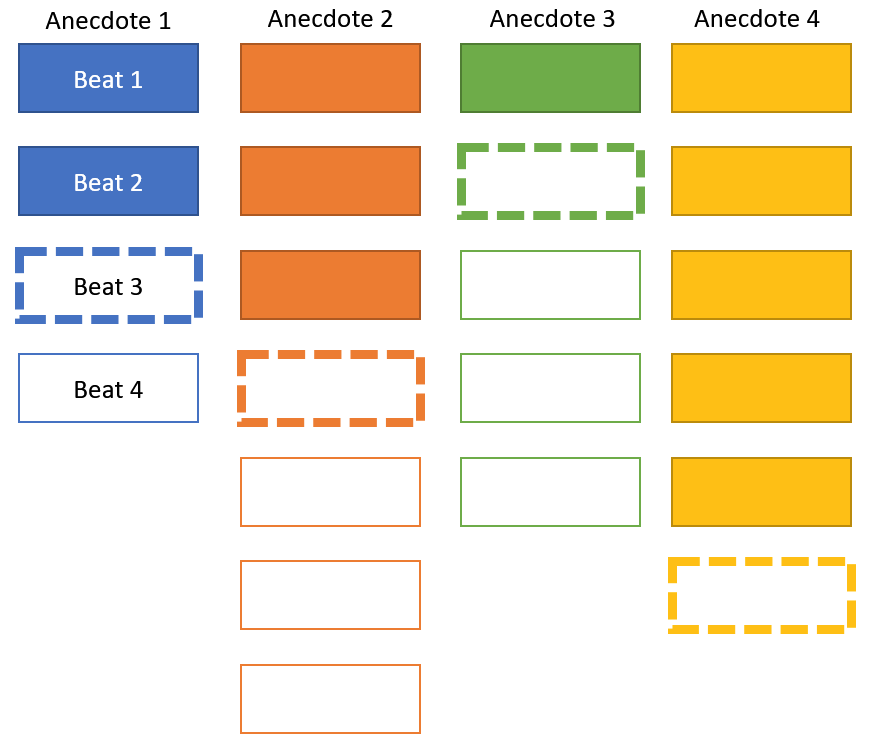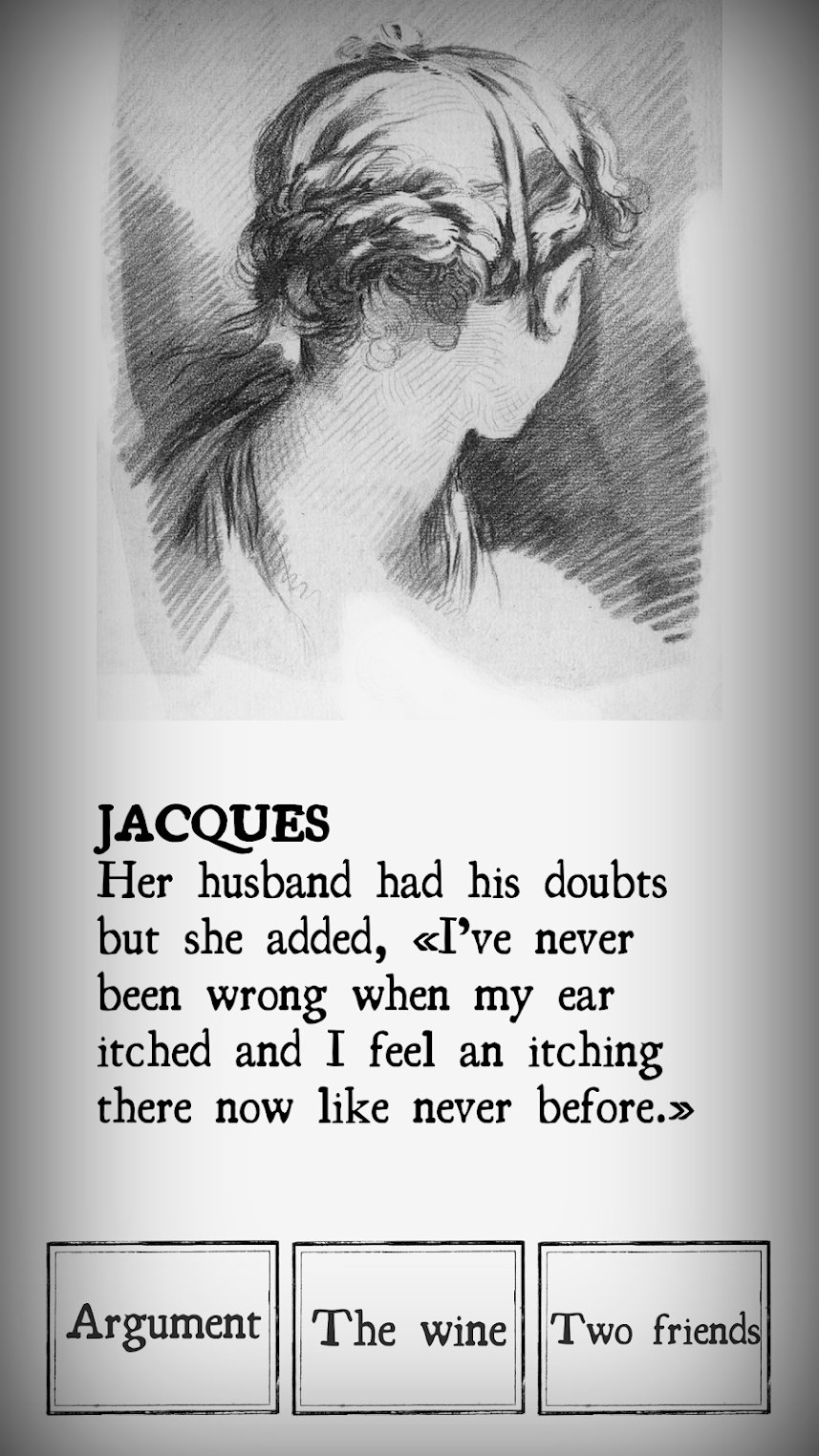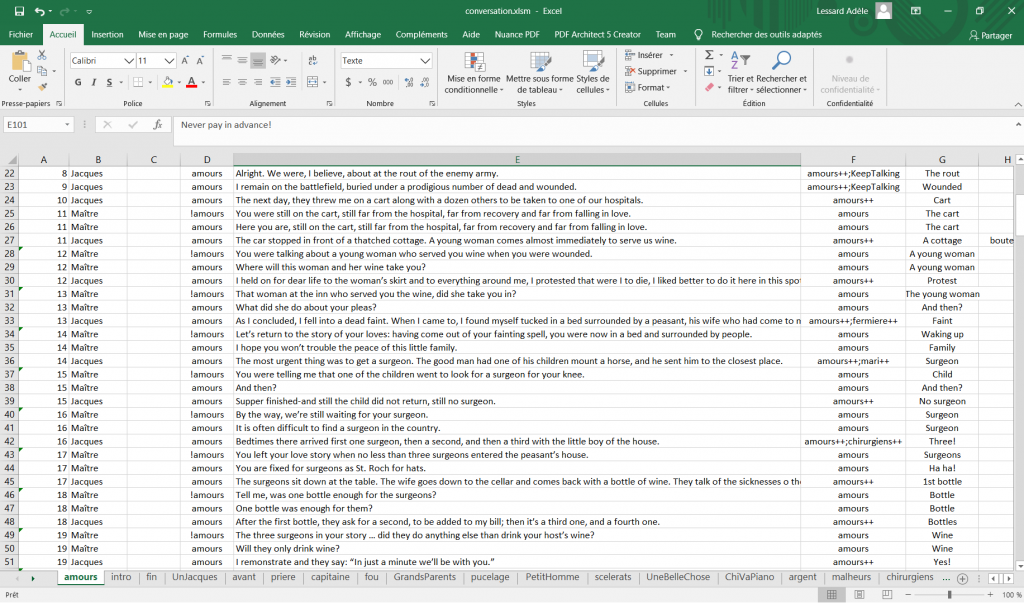
Research group in emergent narratives
Jacque the Fatalist (2020) – English translation
Jacques the Fatalist, a tale of fate, love and sex, is finally available in English. It’s an interactive adaptation of the XVIIIth century novel by Denis Diderot.
Play it here:
- On the App Store : https://apps.apple.com/ca/app/jacques-the-fatalist/id1512693274#?platform=iphone
- On the Play Store: https://play.google.com/store/apps/details?id=com.Absurdus.JacquesEn&hl=en_US
- In a browser: https://lablablab.net/jacques_en/
Coverage:
GameKeys, Underrated Role Playing Games to Play on IOS
Discussion:
The inspiration for this project came from a discussion between Jonathan Lessard (author) and Quinn Kybartas about Emily Short’s observation that some dialogues in IF are like landscapes to be explored.
The point was to see if we could do something like the walking simulator of conversations: no particular objective, only the pleasure of following your curiosity for what someone has to say. We called this “conversational landscape”
At the time I was rereading Jacques le Fataliste, a humoristic philosophical tale by Diderot (co-author of the Encyclopedia). I was struck by the modernity and nonlinear nature of the text. It is almost as if it had been designed with interactivity in mind.
The structure of the adaptation is that Jacques has many parallel stories to tell that are authored as a chain of chunks. At any given point, the player can switch seamlessly (digress) to any open thread of conversation (he does that all the time in the novel).
In this diagram, the player can choose fromof the dotted line chunks as follow-up input. Contrarily to a dialogue tree, you do not need to define the links between the nodes.

One of the issues is that if you want to jump back to a topic you left off a while back, there needs to be some form of reactivation of the subject. So for each “chunk”, I have a cold and hot line.
For example:
[Hot]: Where did they all go? (we know the player knows who “they” is)
[Cold]: By the way, where had the peasants that hosted you and their children gone?
I keep track of the “warmth” of each topic and present the three warmest as options for the player. For this I was actually inspired by gmail’s automatic response propositions.

Everything is authored in Excel, with each tab representing one of the topics.

In the end I still think it’s more interesting to read the book, but I’m quite happy with the design for this kind of conversation. It could probably be better exploited with a narrative that would be tailored specifically for it rather than adapting an existing text.



